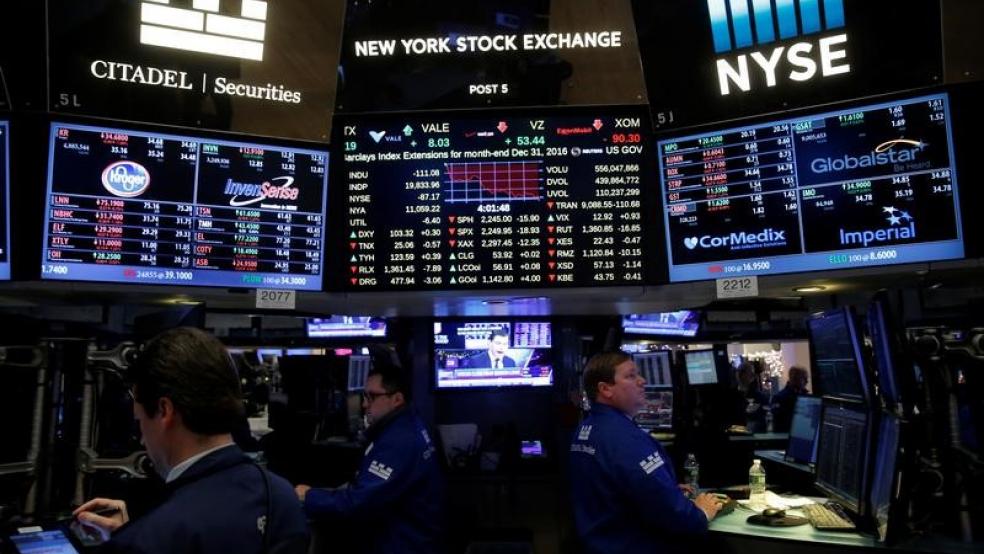Fitch Ratings fired a warning shot Friday about President Donald Trump's economic policies, saying hard-line stances on trade and immigration pose potentially serious problems for the world.
"The Trump administration represents a risk to international economic conditions and global sovereign credit fundamentals," the agency said in a statement. "U.S. policy predictability has diminished, with established international communication channels and relationship norms being set aside and raising the prospect of sudden, unanticipated changes in U.S. policies with potential global implications."
Related: Will Trump Restore 4% Growth or Crash the Economy?
The most serious implications would involve credit downgrades for sovereign debt.
Fitch does not mention the U.S. specifically being subject to a reduced rating, but listed several of its trading partners that could take a hit should negative conditions emerge from Trump's saber-rattling on international trade agreements and immigration flows.
Among those that could face the most serious impact are Canada, Germany, China, Japan and Mexico, all of which have been mentioned by Trump or his advisors as benefiting from unfair trade pacts. Fitch warned that as the rhetoric escalates, "the list is unlikely to end there."
"One interpretation of current events is that, after an early flurry of disruptive change to establish a fundamental reorientation of policy direction and intent, the administration will settle in, embracing a consistent business- and trade-friendly framework that leverages these aspects of its economic program, with favourable international spill-overs," Fitch's analysts said.
However, Fitch maintains that global credit and economic risks are to the downside, with a "less benign" scenario more likely to emerge, particularly when it comes to trade.
Related: Why Trump’s Romance With Big Labor Is Headed for the Rocks
Fitch's warning, however, runs counter to most economic and investor surveys.
Though consumer sentiment dipped in February , it remains high compared with historical norms. The Citigroup Economic Surprise Index, which measures data compared to expectations, is running near multiyear highs. The Atlanta Fed sees first-quarter GDP at 2.7 percent, which would be the best start to a year since 2013.
Also, the major stock market averages are setting new records, and equity mutual funds just broke a 47-week run of net outflows, the longest in history, according to Thomson Reuters Lipper.
'A lot can change'
The administration thus far has pulled out of the Trans-Pacific Partnership, wants to renegotiate the North American Free Trade Agreement and has issued harsh rhetoric against companies seeking to relocate outside the U.S. Fitch said the ramifications of its moves won't be known for a while, but the early indications are for disruption around the world.
"In short, a lot can change, but the aggressive tone of some administration rhetoric does not portend an easy period of negotiation ahead, nor does it suggest there is much scope for compromise," the analysts wrote.
The warning comes a day after Fitch said the amount of countries carrying AAA-rated debt has fallen to its lowest level in 14 years. As a percentage of all nations with rated sovereign debt, that is the worst reading ever.
The U.S. maintains its pristine rating, even though Fitch noted that it is "judged to have (relatively) weak public finances."
On the upside, Fitch said Trump's plans to cut taxes, slash business regulations and spend on infrastructure are pro-growth.
However, restrictions on immigration are viewed negatively. Fitch pointed out that the U.S. and Mexico have the world's busiest immigration corridor. In addition to Mexico, Honduras, El Salvador, Guatemala and Nicaragua all have high "remittance flows," or payments that immigrants send back to their home countries.
The Fitch warning also includes countries that enjoy investment from U.S. companies and in turn ship goods back to the United States. That list is "potentially long" and includes Canada, the U.K., Netherlands, Mexico, Germany, China and Brazil.
This article originally appeared on CNBC. Read more from CNBC:
Trump administration scrubs federal health-care website of positive words about Obamacare
DC fitness studio founder ignites firestorm, criticizes Ivanka Trump for using alias for class
Nearly half of young millennials get thousands in secret support from their parents




